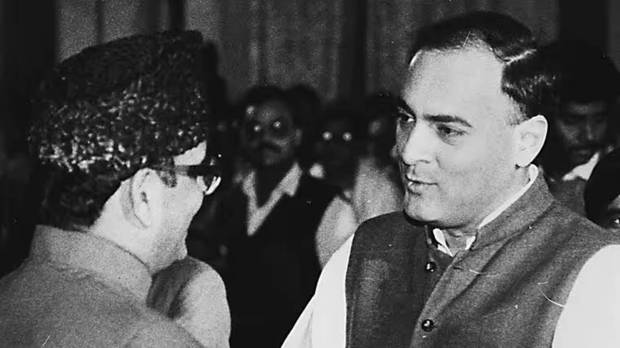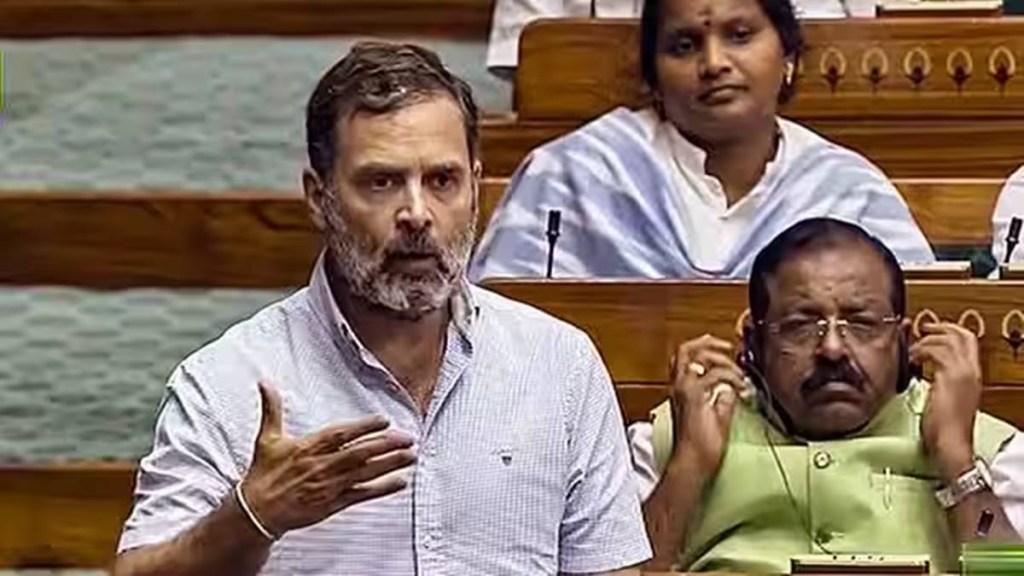The near-unanimous passage of the Women’s Reservation Bill in Parliament that saw Opposition parties shed differences with the government offered Congress a unique opportunity, and the party appears to have pounced on it.
The debate on the women’s bill saw Congress leaders including Lok Sabha MP Rahul Gandhi dramatically turn their focus on the issue of representation of Other Backward Classes (OBCs) and holding a caste census. Rahul has argued that the caste census is key to giving participation to OBCs, Dalits, tribals and women.
Also Read: Women’s Reservation Bill incomplete without OBC quota, says Rahul Gandhi in Lok Sabha
The party, it is learnt, has also instructed its state-level OBC departments to “propagate the message” that Congress was now speaking strongly for OBCs and also compile district-level data on OBC share in terms of wealth and power – like in agricultural land, government contracts, access to credit from banks, representation in private educational institutions and enterprise development, reports The Indian Express.
In many ways, the Congress’ push for greater OBC representation borrows from its playbook in Karnataka when CM Siddaramaiah promised to increase reservations from the existing 50 per cent to 75 per cent if the party was voted to power. The Congress, it appears, treated Karnataka as a testing ground for the idea of reigniting the reservation debate and now plans to take it bigger, perhaps on a national scale.
Also Read: ‘We regret that’: Rahul Gandhi on UPA not providing OBC quota under Women’s Reservation Bill
A historic shift
The development marks a significant shift for the Congress which has historically been seen as opposed to caste-based politics. The only aberration, perhaps, was in April 1977, when the government under Congress veteran ND Tiwari announced a 15 per cent quota in government jobs for OBCs in Uttar Pradesh. Ironically, his government was dismissed by then PM Morarji Desai-led government of the Janata Party, an outfit that claimed to champion the cause of social justice. It was, however, implemented by the Janata government a few months down the line.
In August 1990, the central government led by Congress rebel Vishwanath Pratap Singh announced its intent to implement the report of the Socially and Educationally Backward Classes Commission, popularly known as the Mandal Commission. Constituted in 1978 under the Morarji Desai government, the report recommended 27 per cent reservation for OBCs.
Also Read: Women’s Reservation Bill be implemented immediately, says Rahul Gandhi
Despite the commission submitting its report to the government in 1980, the Congress governments of Indira Gandhi as well as Rajiv Gandhi did not act on it. In a debate in Parliament on the Mandal Commission Report and Measures for the promotion of employment of youth in addition to reservations, Rajiv Gandhi, then Leader of Opposition in the Lok Sabha, made a strong case against caste being the sole criterion for deciding benefits.
Mandal Debate: What Rajiv Gandhi said in Parliament
“If you believe in a casteless society, every major step you take, must be such that you move towards a casteless society. And you must avoid taking any step which takes you towards a caste-ridden society. Unfortunately, the step that we are taking today, the manner in which it has been put, is a casteist formula. While accepting that caste is a reality, we must dilute that formula and break that formula by adding something on to it. So that at least we start inching away from the casteist formula,” Rajiv Gandhi said in an oft-referenced speech in Parliament.
“The Prime Minister does not have the guts to stand up and say whether he believes in a casteless society or does not believe in a casteless society. It is very sad. Sir, Raja Sahib (Prime Minister VP Singh) is putting the caste into our society, once again. He is ensuring that caste does not go out by this action and by sticking to his guns on this issue of caste… Sir, this Government is creating a vested interest in casteism and the country is going to pay a very heavy price for this,” he added.

Rajiv Gandhi also demanded the expansion of the ambit of reservation from Scheduled Castes and Scheduled Tribes to socially and economically backward groups from other religions as well.
“I would request the ‘Raja Sahib’ not to latch on to caste this way but to expand the definition of caste, first by including socially and educationally backward classes or backward groups-whatever you want to call it-from other castes from within the Hindu religion and then expanding it to socially and economically backward groups from other religions, viz., Muslims, Christians, Sikhs, Buddhists, Parsis and others.
“Raja Sahib’s policies are not very different from what the Britishers were doing. It was the British who tried to divide our country on caste and religion and today it is the Raja Sahib, sitting there, who is trying to divide our country on caste and religion,” he said.
Congress and the Mandal aftermath
The aftermath of the Mandal Commission implementation saw widespread violence and deaths during an agitation that changed the face of politics in North India. The movement saw the emergence of caste-based leaders like Lalu Prasad Yadav, Nitish Kumar, Sharad Yadav and Mulayam Singh Yadav while virtually writing off the Congress in UP and Bihar.
The Congress’s electoral slide in the Hindi heartland continued with the Ayodhya Ram temple movement that saw the upper caste Hindu vote siding with the BJP, while Congress’ OBC, SC and ST vote bank moved to caste-based social justice parties like the RJD, JD(U), BSP and SP.
The Congress party did try to make certain amends in the years that followed. It was under the Congress-led UPA rule in 2006 when HRD Minister Arjun Singh pushed through the 27 per cent reservation for OBCs in admissions to central educational institutions.
In 2010, when the Congress government failed to get the OBC quota included in the women’s reservation Bill passed in Rajya Sabha, it ordered a socio-economic and caste census (SECC) in 2011 but never released the data.
Addressing a press conference after the women’s reservation Bill was passed in Parliament, Rahul said he “100% regretted” the UPA government’s decision not to include OBC quota within the women’s quota Bill. He also said that the UPA government should have released the data of the SECC.

